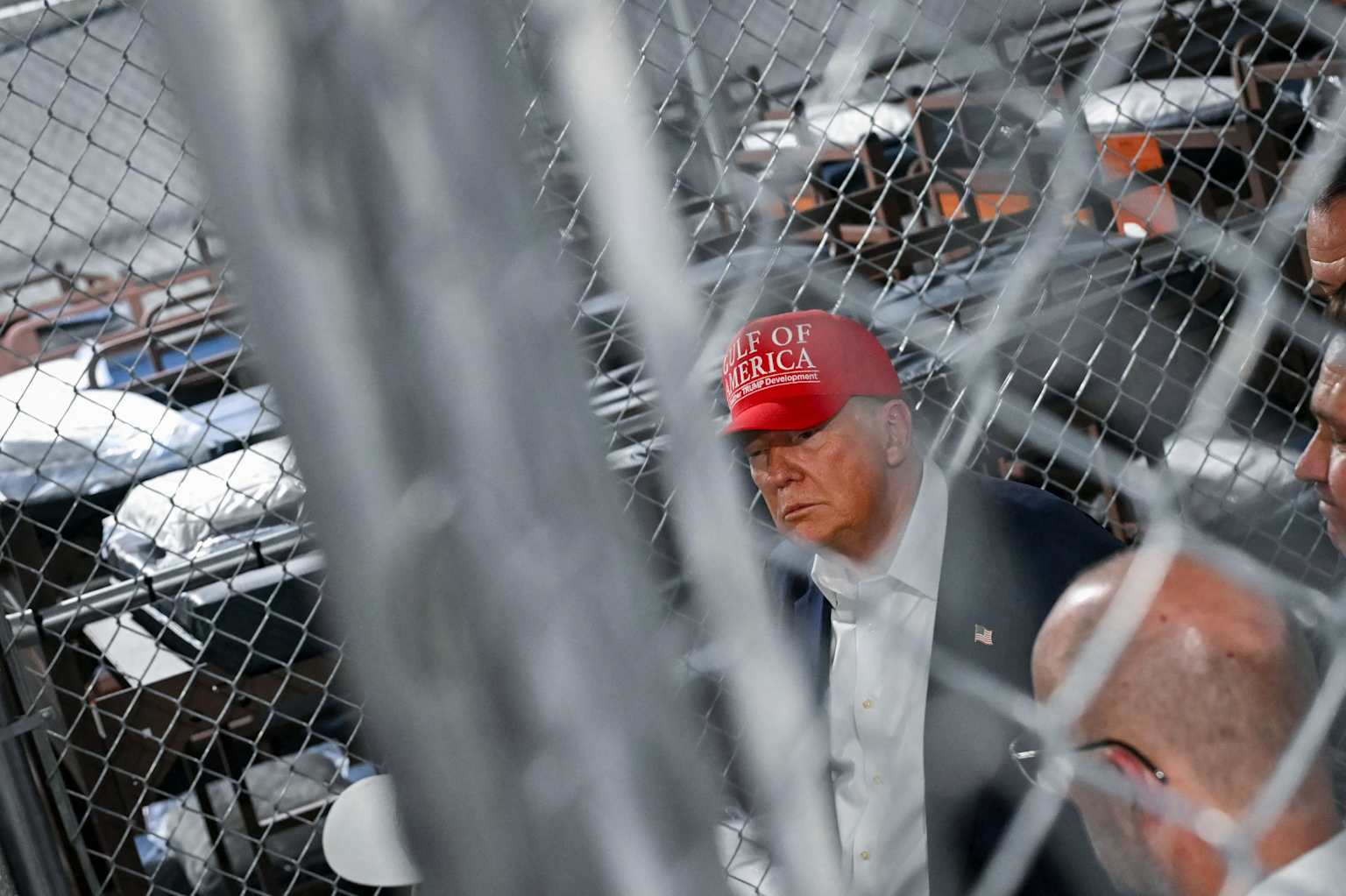- Trump Praises 'Professional' Facility
- Protests and Legal Challenges
- Shifting Enforcement Patterns
President Donald Trump toured a controversial new immigration detention center in Florida's Everglades on Tuesday, praising the remote facility dubbed "Alligator Alcatraz" as protests erupted outside its gates.
The facility, which began operations Tuesday with capacity for up to 5,000 detainees, represents the largest immigration detention center in the United States and a cornerstone of Trump's mass deportation campaign that has arrested over 95,000 individuals in his first five months in office.

Trump, joined by Florida Governor Ron DeSantis and Homeland Security Secretary Kristi Noem, called the facility "so professional and so well done" during his tour1. When asked if it could serve as a model for other detention sites, Trump responded: "It can be," though he noted such locations are rare1.
The president joked that officials would "teach them how to run away from an alligator if they escape prison," referencing the facility's location at Dade-Collier Training and Transition Airport, surrounded by swampland filled with alligators and pythons1.
DeSantis said the site was modified in just eight days to function as a detention center, calling it an "effective way" to increase deportation numbers1. The facility will cost Florida $450 million annually, with partial federal reimbursement through FEMA's Shelter and Services Program2.
Demonstrations lined the highway leading to the facility, with environmental activists and Native American groups opposing the project1. Protesters waved signs reading "Protect the sacred" and "Everglades Only," while others called the detention center "Crimes against humanity"2.
Environmental groups Friends of the Everglades and the Center for Biological Diversity filed a federal lawsuit Friday, alleging construction proceeded without required environmental reviews3. The groups argue the site, which is more than 96% wetlands, threatens endangered Florida panthers and the broader Everglades ecosystem4.
"This reckless attack on the Everglades — the lifeblood of Florida — risks polluting sensitive waters," said Elise Bennett of the Center for Biological Diversity4.
The facility's opening comes as new Immigration and Customs Enforcement data shows a shift in Trump's deportation strategy. While initially targeting migrants with criminal convictions, recent weeks show 44% of those arrested have no criminal history, according to ABC News analysis of ICE data1.
Trump has maintained his focus on deporting the "worst of the worst" first, though the administration has eliminated policies limiting arrests at sensitive locations like schools and churches12.





